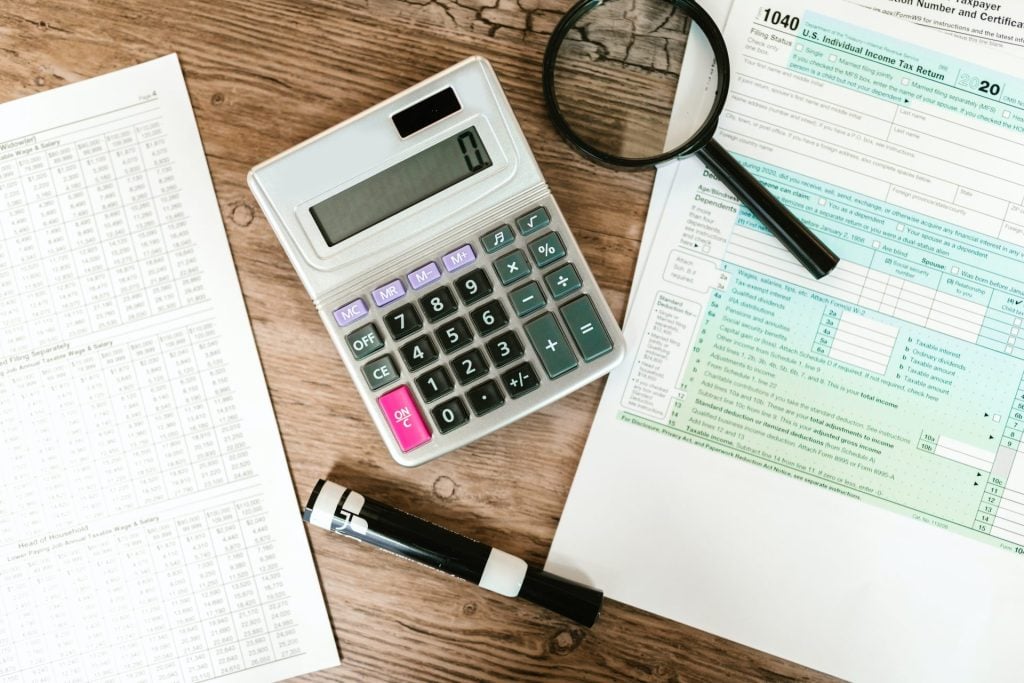BLOGS
Debt Consolidation Loans in the Philippines: What You Need to Know
Whether it’s from credit cards, personal loans, or other financial obligations, managing multiple debts can be overwhelming. That’s where debt consolidation loans come in. If you’re in the Philippines and looking for a way to simplify your financial situation, debt consolidation could be the answer you’ve been searching for.
In this article, we’ll explore what debt consolidation is, how it works, its advantages and disadvantages, and what you need to consider before taking this step.
What is Meant by Debt Consolidation?
Debt consolidation is a debt management strategy that involves combining multiple debts into a single loan. Instead of juggling various payments and due dates, you can streamline your debts into one monthly payment. This is typically achieved by taking out a consolidation loan, which is used to pay off your existing debts.
How Does Debt Consolidation Work?
The process of debt consolidation involves taking out a new loan to pay off your existing debts. This new loan, known as a debt consolidation loan, is typically offered at a lower interest rate than the average interest rates of your current debts.
One of the common ways to consolidate debt is through a personal loan. Once you’ve been approved for a debt consolidation loan, the lender will disburse the funds directly to your creditors. From that point forward, you’ll make regular payments to the lender until the loan is fully repaid.
It’s important to note that debt consolidation is not a magic solution to eliminate debt entirely. It’s a tool that can make debt repayment more manageable and potentially save you money in the long run.

Advantages of Debt Consolidation
Debt consolidation offers several advantages for individuals who are struggling with multiple debts. Here are the notable advantages of consolidating your debts:
1) It simplifies your financial life by consolidating all your debts into one monthly payment.
Debt consolidation simplifies your financial life by consolidating all your debts into one monthly payment. Instead of keeping track of multiple payment due dates and amounts, you only need to remember one payment. This streamlines your finances and reduces the chances of missing payments or incurring late fees.
2) It offers a lower interest rate than your current credit card debt and other high-interest loans.
Debt consolidation offers a lower interest rate compared to credit card debt and other high-interest loans because it involves combining multiple debts into one new loan with a potentially lower interest rate. This can be achieved through various methods, such as obtaining a debt consolidation loan or transferring balances to a credit card with a promotional interest rate.
By consolidating debts, individuals may qualify for a lower interest rate based on factors such as their credit score, income, and the new loan terms. This lower interest rate helps reduce the overall cost of borrowing and makes it easier to manage and pay off the debt
3) It can improve your credit score.
Debt consolidation can improve your credit score in a few key ways, such as follows:
- It can help lower your credit utilization ratio, which is the amount of available credit you’re using. By consolidating multiple debts into one, you can reduce your overall credit utilization and demonstrate responsible credit management.
- It can help you make consistent and on-time payments. Timely payments are a crucial factor in determining your creditworthiness, and by consolidating your debts, you can streamline your repayment process and avoid missed payments.
4) It can provide you with peace of mind.
Debt consolidation can provide peace of mind by simplifying your monthly payments and potentially reducing your overall interest expenses. By combining multiple debts into one loan with a single monthly payment, debt consolidation eliminates the hassle of managing multiple payments to different lenders. This can help you stay organized and avoid missed or late payments, reducing the stress and anxiety associated with managing debt.
Debt consolidation can also make repayment less expensive by potentially securing a lower interest rate or extending the repayment term. This can provide financial relief and ease the burden of high monthly payments, allowing you to budget more effectively and regain control over your finances.
Disadvantages of Debt Consolidation
While debt consolidation has advantages, it’s important to consider the potential disadvantages. Here are some of the main drawbacks of debt consolidation loans that you should keep in mind:
1) It may require collateral.
Debt consolidation can be disadvantageous when it requires collateral because it puts the borrower’s assets at risk. Some debt consolidation methods, like home equity loans or secured loans, require you to use your assets as collateral. If you fail to make payments, you could risk losing your property.
When opting for secured debt consolidation, borrowers have to pledge an asset, such as a home or vehicle, as collateral for the loan. In case of default, the lender can seize the collateral to recover their losses. This puts the borrower’s property or vehicle in jeopardy.
Moreover, secured debt consolidation can lead to larger loans and potential financial trouble as the borrower combines multiple debts into one loan, resulting in longer repayment terms and higher costs.

2) It’s not a solution for everyone.
Debt consolidation can be a useful strategy for managing multiple debts, but it is not a one-size-fits-all solution. Here are a few reasons why debt consolidation may not be advantageous for everyone:
- High interest rates: If you have a good credit score, debt consolidation loans may offer lower interest rates. However, if your credit score is poor, you may end up with a higher interest rate on the consolidation loan. In such cases, consolidating your debts may not save you money in the long run.
- Extended repayment period: Debt consolidation often involves extending the repayment period, which can reduce your monthly payments but increase the overall cost of the debt. If you’re already struggling with payments, extending the repayment period may not be the best solution.
- Temptation to accumulate more debt: Consolidating your debts can free up available credit on your credit cards, which may tempt you to use them again and accumulate more debt. This can put you in a worse financial situation than before.
- Fees and charges: Debt consolidation may come with various fees, such as origination fees, balance transfer fees, or closing costs. These additional expenses can offset any potential savings you might have gained from consolidating your debts.
3) It doesn’t magically eliminate your debts; it combines them into one loan.
Debt consolidation only addresses the symptoms of debt, not the root causes. If overspending or poor financial habits are the underlying issues, consolidating debts without addressing these habits may lead to a recurrence of debt in the future. If you continue to accumulate new debts while repaying the consolidation loan, you may find yourself in a worse financial situation than before.
Things to Consider Before Debt Consolidation
Before diving into debt consolidation, there are a few important factors to consider, which may be enumerated as follows:
1) Take the time to assess your financial situation and determine if debt consolidation is the right solution for you.
Consider the total debt amount, interest rates, and monthly payments. Calculate whether consolidating your debts will improve overall savings and financial management. Additionally, evaluate your spending habits and financial discipline to ensure you won’t accumulate new debts after consolidating.
2) Research and compare different lenders and loan options.
Look for reputable lenders who offer competitive interest rates, flexible repayment terms, and favorable conditions. Read customer reviews and seek recommendations from trusted sources. Furthermore, carefully review the terms and conditions of the consolidation loan, including any fees or penalties. Ensure that you fully understand the implications of the loan before signing any agreements.
3) Does Debt Consolidation Affect Your Credit Score?
The impact of debt consolidation on your credit score depends on how you manage your debts after consolidation. Initially, applying for a debt consolidation loan may result in a temporary decrease in your credit score due to the hard inquiry on your credit report. However, your credit score can gradually improve as you make regular payments and reduce your debt.
One of the positive effects of debt consolidation on your credit score is that it can lower your credit utilization ratio. You free up your available credit by paying off multiple debts and consolidating them into one loan. This can positively impact your credit score, as credit utilization plays a significant role in determining your creditworthiness.
On the other hand, failing to make timely payments on your debt consolidation loan can negatively impact your credit score. It’s crucial to make consistent and on-time payments to ensure the positive effects of debt consolidation on your creditworthiness.
Eligibility Requirements for a Debt Consolidation Loan in the Philippines
To be eligible for a debt consolidation loan in the Philippines, you typically need to meet certain criteria.
For instance, most lenders require you to be a Filipino citizen or a permanent resident of the country. You must also be of legal age, usually 21 years old and above, to apply for a debt consolidation loan.
In addition, lenders may consider your income and employment stability. They want to ensure that you have a steady source of income to make the monthly payments and pay off the loan. Some lenders may require a minimum monthly income threshold, while others may look at your employment history to assess your stability.
Furthermore, lenders will review your credit history and credit score to determine your creditworthiness. A good credit score can increase your chances of approval and help you secure a lower interest rate. If your credit score is not ideal, some lenders may still offer debt consolidation options but with higher interest rates.

Steps in Consolidating Debt in the Philippines
If you’ve decided that debt consolidation is the right option for you, here are the steps you’ll need to follow in the Philippines:
1) Assess your financial situation and determine the total amount of debt you want to consolidate.
When considering debt consolidation, it is crucial to assess your financial situation and determine the total amount of debt you wish to consolidate, as this helps you to make informed decisions about how to proceed with consolidating your debts effectively.
Start by gathering all the necessary information about your debts, including outstanding balances, interest rates, and payment terms.
Calculate the total amount you owe in Philippine pesos and make a list of all your creditors. This step is important as it helps you clearly understand your debt situation and aids in choosing the most suitable debt consolidation option for your specific needs.
2) Research and compare different debt consolidation loan options from reputable lenders.
When considering debt consolidation, it is important to research and compare different loan options from reputable lenders. This step involves examining each loan’s terms and conditions, interest rates, and fees. It is advisable to compare loan options offered by various banks and financial institutions in the Philippines to ensure that the chosen loan provides favorable terms and conditions for debt consolidation.
3) Gather all the necessary documentation, including proof of income and identification.
This step involves collecting and organizing all the relevant paperwork required by the lender or debt consolidation company. Some of the essential documents include proof of income, such as payslips or employment contracts, to demonstrate your ability to repay the consolidated loan.
Additionally, you will need to provide identification documents, such as a valid government-issued ID or passport, to verify your identity. These documents are crucial for the lender to assess your financial situation and determine your eligibility for debt consolidation.
4) Wait for loan approval.
After submitting your application, the lender will assess your eligibility based on the provided documents and conduct a credit check. This process may take some time, so be patient. If your application is approved, the lender will inform you of the loan terms and conditions.

5) Review and sign the loan agreement.
Once approved, carefully review the loan agreement, including the interest rate, repayment terms, fees, and any other conditions. Seek clarification if needed before signing the agreement.
6) Receive the loan funds.
After signing the loan agreement, the lender will disburse the approved loan amount to you. The funds can be deposited into your bank account or given to you in the form of a check, depending on the lender’s procedure.
Once the loan amount is disbursed, use it to pay off your existing debts and make sure to make your monthly payments on time to the consolidation loan lender.
Best Debt Consolidation Loans in the Philippines
When it comes to choosing the best debt consolidation loan in the Philippines, there are several reputable lenders to consider. Some of the top options include:
- Bank of the Philippine Islands (BPI)
- Security Bank
- BDO Unibank
- Metrobank
- Citibank
Get Luxurious Properties Without Breaking the Bank at Brittany Corporation
If you’re looking to invest in luxurious properties without breaking the bank, Brittany Corporation offers attractive options. As a trusted real estate developer in the Philippines, Brittany Corporation provides high-quality residential properties in prime locations. With various financing options available, including debt consolidation loans, you can fulfill your dream of owning a luxurious property while managing your finances effectively. Explore the offerings of Brittany Corporation and make your real estate investment a reality.
Final Words
Debt consolidation loans can be a valuable tool for individuals seeking to simplify their finances and manage multiple debts. By consolidating your debts into one loan, you can potentially save money on interest payments and regain control over your financial obligations. However, it’s important to carefully consider the advantages and disadvantages of debt consolidation, evaluate your eligibility, and compare loan options before making a decision. With proper planning and responsible financial habits, debt consolidation can be a stepping stone towards achieving financial freedom and peace of mind.
Suggested Read: For Better Or Worse: Financial Questions To Ask Your Partner
Suggested Read: ‘BBB’ Credit Rating: Everything To Know
Suggested Read: How To Maintain A Good Credit Score
Suggested Read: OFW Parents Pre-Retirement Goals
Suggested Read: Luxury real Estate And Tax Season
















